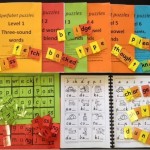Alison Lawson clinics
9 Replies
My 2015 blog post about the Alison Lawson clinics has now been superseded by an excellent article in the magazine of the the Royal Australian and New Zealand College of Opthamologists called, “The Role of the Opthamologist in the management of dyslexia”.
Its most relevant paragraph says:
“Therapies including the Lawson anti-suppression device, syntonics, applied kinesiology, megavitamins and mega oils, the use of trace elements and psychostimulants have all been claimed to improve the reading of dyslexics. The Lawson anti-suppression device, as used in the Alison Lawson clinics, offers a quick fix with 10 one-hour treatments aimed at stimulating the visual cortex. This treatment is based on the false premise that the visual cortex is responsible for reading. There are no controlled trials to support the claims of efficacy of any of the fringe therapies. Their claim to success is based on anecdotal evidence”.
Please refer to the Spring 2016 edition of “Eye to eye”, the magazine of the Royal Australian and New Zealand College of Ophthamologists, especially page 57, column 1.
In the face of this clear statement in the magazine of the peak body of Australasian eye experts, I don’t think there’s any need for further comment from me on the Alison Lawson clinics.
However, if you’d like further information, the RANZCO statement on Learning Disabilities, Dyslexia and Vision can be found here. The American Academy of Opthamology’s statement on Learning Disabilities, Dyslexia and Vision can be found here.
Last updated 18/1/2021



I have spent hundreds of dollars on appointments with a prominent Opthamologist and on the Alison Lawson Clinic in desperate attempts at getting answers for my daughter’s difficulty in learning to read. Both have failed me and my daughter. So has her school. I have given up!
I’m so sorry to hear that, Jen, there are far too many parents wasting money on non-evidence-based treatments, which is why professionals need to be clearer about how to decide what to spend hard-earned money and precious time on, and make sure it is supported by the best available evidence. Don’t give up on your daughter though, there are very effective programs available and skilled people who can help her. Reading and writing are such crucial skills, and if your daughter hasn’t had good evidence-based intervention, then that’s the problem, and that can be solved.
Hello Jen,
this is a program that helped my son a lot. http://www.easyreadsystem.com/index/index.html They are a non profit organisation and they give very good online support. My son who is 9 is about halfway through the program and his reading has improved massively. More importantly he really enjoys his daily 15 minutes of easyread. Like you we have tried lots of different things but nothing really helped. He has now started to read signs that he sees. He is much more confident in what he does. The teacher told me that he likes to read out loud in class and I think that his concentration has improved as well.
They have a 10 day free trial. Might be worth trying it out for your daughter.
Bettina
Hi Bettina, thanks for the comment, I must take a look at Easyread myself sometime, I haven’t seen it before, there are just so many programs out there and it’s hard to get one’s head around them all. All the best, Alison
Jen, I feel for you! Our son-now 8, was diagnosed as having dyslexia at age 5…I knew something wasn’t write, and explain this in the testimony I gave on the Alison Lawson website. I have no doubt that with our sons diagnosis and his inability to read his name at 5yrs old to the point now where he has achieved a high level reading in his latest report, that the Lawson program does work if dyslexia is in fact the diagnosis.
I did not notice a sudden change…it has developed from continuation of the program at home.
I truly wish you all the best..there will be an answer..hang in there….Julie
Hi Julie, I’m glad your son is doing well now, but I’m afraid the evidence and the experts don’t support your view that the Lawson program is effective in dyslexia.
This is curious so many people have recommended this treatment and it has worked for my Nephew and we where referred to the Alison Lawson centre from an optometrist/ Ophthalmologist . I think the evidence is in what has been achieved for many people and most report quite high success rate. Just keep trying until you get success I plan to try some of the recommendations on this site too.
Hi Jonathan, one problem with testimonial-based marketing is that those using it only put up the positive testimonials, they are hardly going to put “this was a waste of time and money” type testimonials up on their website, so you never hear about the people for whom the treatment did not work. Great to hear that your nephew has had some success but without a controlled experiment it is not possible to know what exactly made the difference for him, which is why we have scientific research into treatment methods. The opthamology peak bodies would not say “vision problems are not the cause of primary dyslexia or learning disabilities” if treatments based on this idea were supported by serious evidence.
[…] a language-based problem. Like many others, I’ve said this before (here, here, here, here, here, and here) but the zombie idea of ‘visual dyslexia’ still seems to be wasting […]